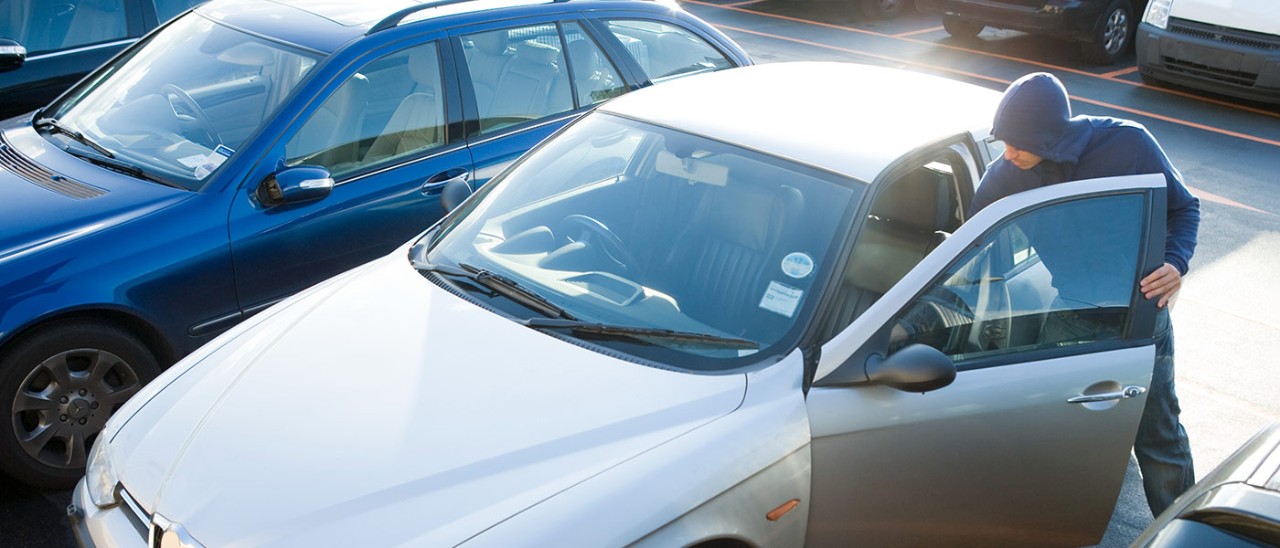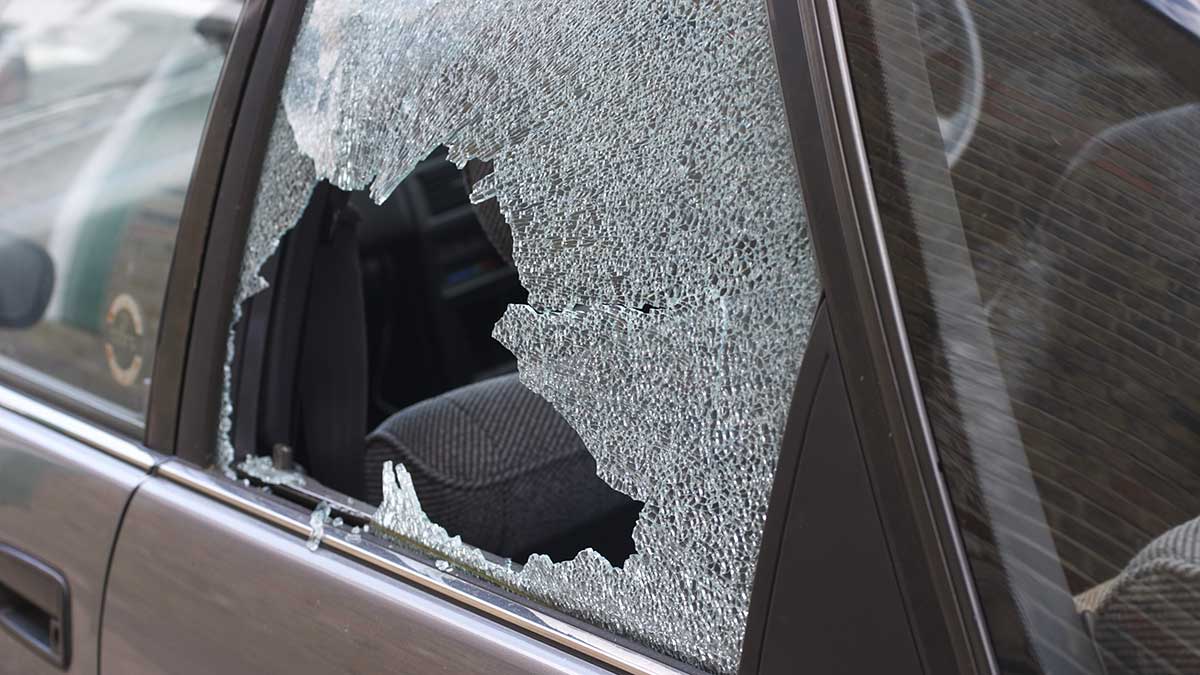Driveway bollards can help deter thieves and provide an extra layer of security. Here’s how to choose the best bollards for your driveway.
How to prevent car theft and protect your car

Motor vehicle theft is on the rise, highlighting the need for Victorians to be vigilant about their home and car security. Learn where your car is most at risk and how to reduce the risk of thieves stealing your vehicle.
Motor vehicle theft has hit record highs in Victoria, with the Crime Statistics Agency reporting 33,018 offences recorded in the year ending June 2025. That number represents a 42.1 per cent increase on the previous year, while theft from a motor vehicle increasing by 39.4 per cent for a total of 86,351 recorded offences.
Of the motor vehicle thefts reported, 7,220 were stolen from a private dwelling (a house, apartment building or similar residence), while 10,088 vehicles were reported stolen from the street or footpath. The increase in motor vehicle theft comes as Victoria experiences its highest rate of criminal incidents since records began in 2004-05.
Neighbourhood Watch Victoria CEO Bambi Gordon advises Victorians to be mindful of simple ways they can help reduce the risk of car theft.
"Relaxed attitudes to property security, including cars, make it easier for opportunistic thieves to take advantage of Victorian motorists and steal cars directly from properties and driveways," Gordon says.
Along with updating your car insurance, there are several things Victorian motorists can do to mitigate the risk of financial loss stemming from car theft. To help you avoid the stress, inconvenience and cost of having your car stolen, here are the most common reasons for car theft, as well as some tips to reduce the risk of it happening to you.
Common reasons for car theft
Easy-to-find keys, OBD overrides, and fob signal cloning
"Older models can be hot-wired, but there are fewer of these pre-2000 cars on the road," says Gordon. Modern cars, on the other hand, are impossible to hotwire – meaning that thieves need your car keys to steal your car.
Neighbourhood Watch Victoria statistics reveal that 70 per cent of late model cars stolen in Victoria are stolen using their own keys. "Thieves look for keys left in the car, or on a hook inside an unlocked front door," Gordon advises. "If your keys are in the house, even if you're home, keep the doors locked so that a thief can’t sneak in, grab the keys, and steal the car before you even realise they have entered the house."
Newer, push-start cars are also at risk of theft. Thieves can access and turn on the ignition for such vehicles by using an OBD (on-board diagnostics) port device to override the car's computer, eliminating the need for them to steal the physical key fob.
Victoria police reports that 1 in 5 cars are currently being stolen via this method, with thieves picking out certain Holden Commodore, Subaru Impreza and Toyota Corolla, Hilux, Landcruiser, Rav4, 86 and Camry Prado year models.
Car thieves can also copy a push-start vehicle's key fob signal using RFID signal cloning devices that are readily available and legal to purchase. Victoria Police seized more than 800 such devices from individuals arrested for car theft in the past year.
More: How to help keep your car and keys safe at home
Leaving valuables in the car
Leaving valuable items like tablets, mobile phones or trade tools in plain sight from outside the car increases the temptation to steal.
The most common items stolen include registration plates and tradie tools. Stolen registration plates are often used to facilitate further offending such as petrol theft and other crimes.
"Thieves can be ruthless," Gordon says. "They’ll take what they can easily get their hands on inside your car, and if the opportunity presents, they’ll take the car too."

Thieves often look for valuable items in easily accessible locations, like car seats. Image: Getty
Poor car security
Older cars are much easier to steal due to a lack of engine immobilisers, proper door locks, security alarms and vehicle trackers. The absence of modern security features makes older cars very easy and appealing to steal. They also offer easier access to catalytic converters, which are a part of the exhaust system rich in precious metals like platinum, palladium and rhodium. Adjustable steering wheel locks are readily available and owners of older cars may find one of these devices is useful in helping deter thieves.
More: What is stolen vehicle tracking
Easy access to the home
Car theft can be a precursor to home burglary. By putting details like your home location and front door key on your car keys, you’re providing a thief with your address and an easy way to enter your home – meaning it’s not just your car that can be stolen, but other belongings too.
"Many people put their home address on key rings in case they lose their keys, so they can be returned," says Gordon. "But times have changed, and this is more of a security risk than people may think."
Strong used car prices
Car theft has been lucrative for opportunistic thieves thanks to high demand and strong used car prices since the pandemic. In-demand cars, such as 4x4 utes, have been among the most stolen cars in Victoria.
How to protect your car from theft
Remove keys from your car
Always lock your car and take your keys with you after driving. In the home, make sure your car keys are kept in a place that’s out of sight, like a drawer or cupboard. If you're going out without your car, bring your car keys along so potential burglars can't take your car.
"Never leave a spare key hidden somewhere in or near the car," Gordon adds. "Thieves are used to this and know where to look."
Victoria Police recommends owners of push-start vehicles invest in an OBD port lock device to help prevent thieves from electronically stealing their car. Storing your key fob away from windows and doors (where it is easiest for thieves to copy them without entering your home) can also help prevent theft. Storing your keys in a Faraday box, bag or similar RFID blocking device can further help prevent thieves from copying your key fob.
More: Best home safe for your valuables
Lock your car doors and garage door
"Always lock your car – when out and about, and when parked at home," Gordon says. "Locking your doors is a good habit to get into, no matter whether you live in a metropolitan or regional area."
It may sound obvious, but many households also make it easy for thieves by leaving their entry doors and gates unlocked, and even their garage doors open. Not only can thieves easily access your car, but also your garage contents like bicycles and power tools which are in high demand.
More: How to improve the security of your driveway and carport
Install anti-theft screws on your number plates
Number plate theft is on the rise in Victoria, with 31,980 number plate thefts recorded in the year ending June 2025 according to the Crime Statistics Agency - an increase of 50.6 per cent on last year.
Thieves target vehicle number plates to install on their own (often stolen) vehicles to carry out crimes undetected. Make sure to blur your number plates when posting any images of your vehicle online for sale and consider replacing the screws holding your physical number plates on with anti-theft screws.
Install car security
If your car doesn’t have a working alarm system, it’s worth getting one installed. "The loud noise emanating from an alarm system can be enough to deter a thief from continuing the theft," Gordon explains.
Older cars also tend to lack the engine immobiliser security feature found in more modern vehicles, allowing them to be hotwired. After-market engine immobilisers can be fitted to older cars to prevent hotwiring for only a few hundred dollars. Other anti-theft devices include bonnet locks, steering wheel locks, ignition shields, battery isolators and GPS trackers.
A qualified mechanic can have a look at your car and install an alarm system, engine immobiliser or other anti-theft device for you.
Invest in home security equipment
Home security systems like security cameras and home alarms are a major deterrent for thieves and can be extremely useful in a police investigation.
"Anything that makes a thief aware that the theft won’t be easy and there is a chance they will be spotted is great protection for your car," Gordon says. "Thieves are after low risk and high return."
Take the How Safe Is My Place quiz to identify vulnerable points in and around your home so that you can take precautions to protect your vehicles and other contents.
More: How to improve the security of your driveway or carport
The information provided is general advice only. Before making any decisions please consider your own circumstances and the Product Disclosure Statement and Target Market Determinations. For copies, visit racv.com.au. As distributor, RACV Insurance Services Pty Ltd AFS Licence No. 230039 receives commission for each policy sold or renewed. Product(s)issued by Insurance Manufacturers of Australia Pty Ltd ABN 93 004 208 084 AFS Licence No. 227678.


